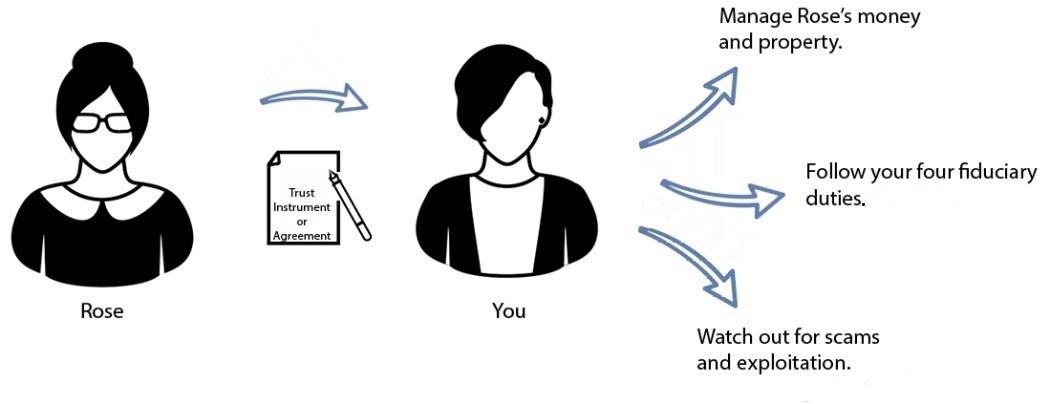Like many people, you may never have been a trustee under a revocable trust before. That’s why we created Managing Someone Else’s Money: Help for Trustees Under a Revocable Trust. This Guide will help you understand what you can and cannot do in your role as a trustee. In that role, you are a fiduciary.
For this Guide, a fiduciary is anyone named to manage money or property for someone else. You’ll find brief tips to help you avoid problems and resources for finding more information.
This Guide is for family and friends serving as a trustee, not for professionals. If you want to learn about making a revocable trust, this Guide is not designed for you. Talk to a lawyer or read other guides about revocable trusts from the State Bar of Texas or others.
This Guide does not provide legal advice and it is not intended to take the place of any training required by law or instruction provided by the court. If you have questions about your duties, talk to a lawyer, read our other guides, and visit the "Seniors and the Law" webpage of TexasLawHelp.org.
How you might have become a trustee
Your family member or friend is worried that she will become incapacitated and will not be able to pay her bills or make other decisions. For this Guide, we will call her Rose. Rose has signed a legal document called a trust instrument (or trust agreement). In it, she named a trustee.
When she set up the trust, she should have transferred ownership of some or all of her money and property from her name to the trustee’s name as trustee. In the trust instrument, Rose can name you as trustee effective immediately. But Rose probably set up the trust so that you become a trustee only after Rose can no longer make decisions. Once you become trustee, according to the trust instrument, you have the power to make decisions, for Rose’s benefit, about the money and property in the trust.
The law gives the trustee a lot of responsibility. A trustee is a fiduciary with fiduciary duties.
